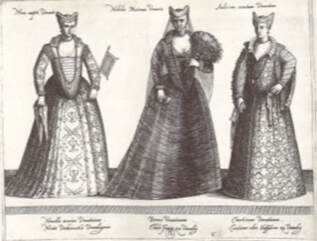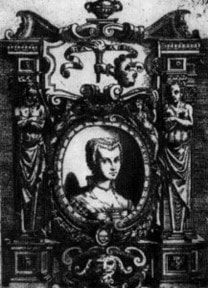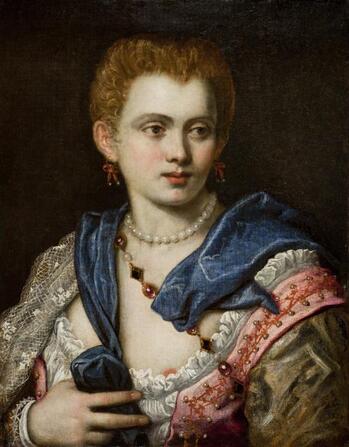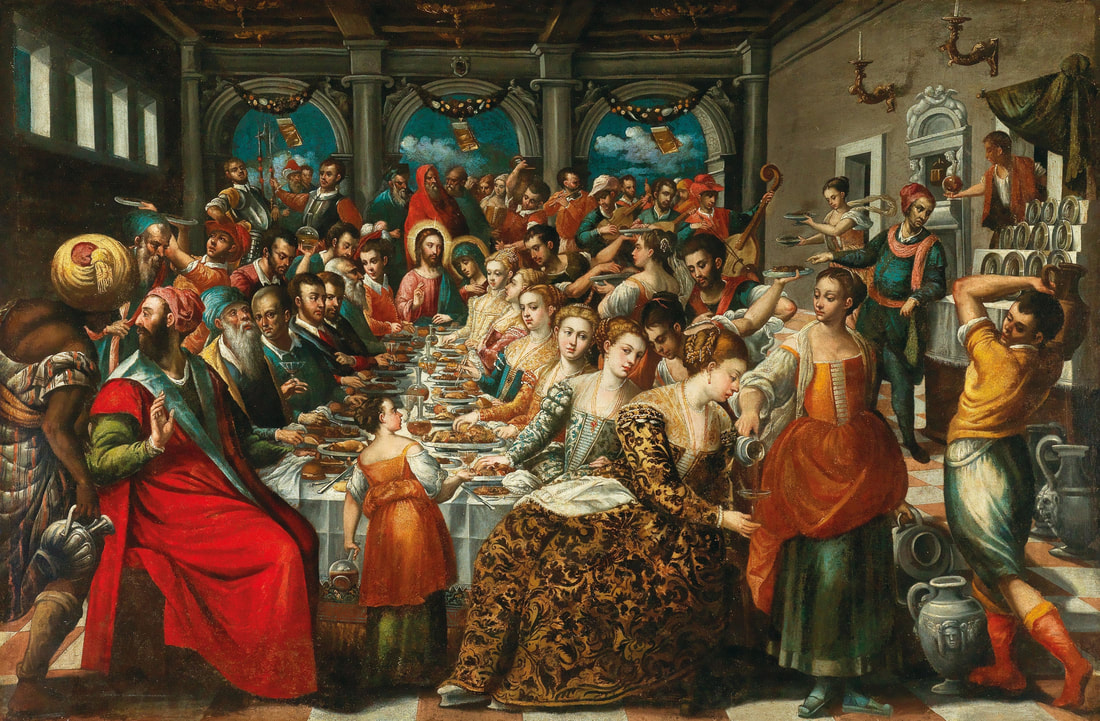|
In Capitolo 16, Franco argues that any general weakness found in women comes from a lack of resources and opportunity and not from their nature. Franco wrote this poem as a response to Maffio Venier, a poet who publicly defamed her in his work. She writes,
Franco argues that, given proper “weapons and training,” women would have the same “hands and feet and hearts” as men. While defending the strength of women, Franco confronts an essentialist approach to the sexes. She challenges the idea that qualities like strength and delicacy are mutually exclusive and that either of them belong only to a single sex. She explains that in the same way we find tough, yet cowardly men, we can find delicate and strong women. Seeing women as weaker than men because of their general delicacy, then, fails to capture the complexity of each person as an individual. Franco sees the attack of Maffio as an attack on all women. She promises to “defend all women/ against” men like her attacker and to serve as “an example for them all to follow.” (79-80) In this role, Franco describes how she came to know her own strength. According to Franco, many women, because they lack the right training and tools, feel that they are weaker than men. She writes, “Women so far haven’t seen this is true;/ for if they’d ever resolved to do it,/ they’d have been able to fight you to death.” (70-72) Even Franco admits to feeling “defenseless” and vulnerable to the attacks of men. (22) Yet, after “devoting all [her] efforts to arms,” she came to “no longer fear harm from anyone.” (37-39) Her newfound security taught Franco “that women by nature are no less agile than men.” (34-36) In sharing her own experience, Franco argues that women can escape positions of vulnerability if they are given the same opportunities and resources as men. I think it is important to note that Franco does not ultimately challenge her attacker to a physical fight. Instead, she defends herself as an intellectual. Franco trains with the metaphorical “arms” of language in preparation for this fight. She tells Maffio that he can choose any language to battle in as she is “equally happy with them all,/ since [she has] learned them for exactly this purpose.” (126-127) She describes her attacker’s weapon as, “The sword that strikes and stabs in [his] hand—/ the common language spoken in Venice” and says that she will also fight using her rhetoric. (112-114) Towards the end of the poem she writes,
By defending herself as a skilled writer while serving as a champion of all women, she defends the intellectual capacities of her sex. Franco also highlights how her education and the chance to “practice” her craft has prepared her to win this fight. Again, she shows how the right resources can prepare a woman for any kind of combat against a man. As seen in my previous post, Franco believes that virtue is not found in bodily strength, but in the “vigor of the soul and mind.” (Capitolo 24, 61-62) Thus, in choosing to ultimately defend her superior intellect instead of focusing merely on physical strength, Franco reinforces the argument that women excel in virtue as seen in their superior reason. -MP Image info: Newlywed Venetian Bride, Noble Venetian Matron, Venetian Courtesan (engraving) Anonymous Bibliotheque Nationale, Paris. Lawner. https://venice11.umwblogs.org/venetian-attire-similarities-between-courtesans-and-aristocratic-women/#_edn
1 Comment
I will first look at Franco’s poem, Capitolo 24. Franco wrote this poem as a response to a man who had insulted and threatened another woman, presumably a fellow courtesan. The entire poem is 160 lines. I will examine lines 70-90 as seen below:
Earlier in the poem, Franco argues that virtue lies in the soul and mind and that women “have given/ more than one sign of being greater than men” in this way (65-66). In the excerpt above, Franco outlines the ways in which women show their superiority in virtue. Franco seems to make two arguments here: first, that submission to men serves as an act of virtue and second, that childbearing plays a significant role in both submission and in improving the condition of the world. Through their submission and childbearing, Franco argues, women are superior to men in virtue.
Franco describes the submission of women as an adaptive response to the weakness of men. Women must guide and carry men because men are weak and prone to “fall” without women’s support. Franco implies that because men “do wrong,” they cannot support the weak in the same way women support men. As a result, women must become the submissive party if they want to “avoid pursuing wrongdoing.” Submission is thus a choice women make in order to compensate for the shortcomings of men. Still, Franco reminds the man whom the poem addresses that, if women were to ignore this call to service and reveal their superiority, women would easily “surpass” men. Yet, a woman intentionally “submits to tyrannical, wicked man” and becomes “silent.” The submission of women, for Franco, acts as both a virtue and a reflection of the strength women have in comparison to men. Childbearing, for Franco, exemplifies the virtuous and indispensable submission of women. An end to the submission of women, according to Franco, directly results in an end to childbearing. Franco presents childbearing as a paradigm act of submission. Yet, in providing offspring, women have the unique ability to play a role in improving the condition of the world. For Franco, women bear children so that women do not “ruin the world” and instead, make the world “beautiful.” In this way, submission can be said to empower women as they are able to affect the world in a significant and unique manner by giving birth. For Franco, childbearing embodies the powerful sacrifice women make in order to improve the condition of the world. This submission is also voluntary and actively chosen as a result of the superior reason and morality of women. In the excerpt above, Franco tells the story of why men became the dominate sex. According to Franco, the power of men results directly from the grace and selflessness of women who are wiser and superior in virtue. In order to compensate for the failures of the weaker sex, women submit and support men. The power given to men, however, can be taken back at any time if women refuse to procreate. Yet, their virtuous and reasonable nature leads them to do what is best for the world as a whole and bring the beauty of offspring into the world. The submission of women to men, seen especially in childbearing, exemplifies the virtue and reason of women as they refrain from revealing their true superiority to better serve the world. Our first Venetian female philosopher is Veronica Franco (1546-1591), a 16th century courtesan known for her letters and poetry. Franco was born into a working class family with three brothers, all of whom received an education. Fortunately, her mother encouraged her daughter to study under a tutor alongside her brothers. It was not until after her divorce from Paolo Panizza that Franco, left with a child and the loss of her dowry, became a courtesan for highly esteemed men including Henry III and Domenico Venier. Venier, a famous poet himself and head of a renowned literary academy, provided Franco with great friendship and a space to work on her writing.
Franco’s writings critique the treatment of courtesans by the state and men. Her poetry provides insight into her personal relationships as well as her philosophical endorsement of equality between men and women. In her own defense, Franco makes herself representative of all women and argues that, given the opportunity and resources, women would have physical and mental abilities equal to that of men. Later in her life, Franco published a collection of her correspondence with her clients. Shortly after this publication, however, Franco was accused of witchcraft and her reputation was ruined. Throughout the course of her career, Veronica Franco became known for her esteemed reputation as a courtesan, her defense of equality for women, and her exceptional writing abilities. We will look at selected passages in her ‘Terze Rime’ (1575), a collection of poetry, and selected letters from her “Lettere Familiari a Diversi” (1580), a collection of 50 letters between Franco and her clients. -- MP Image : Jacopo Tintoretto (1575-1594), Portrait of a Lady. Source: Worcester Art Museum. Note: This portrait is taken to be of Franco because her name is written on the lining of the canvas During the Renaissance, Venice served as a major point of trade in Europe. With a flourishing economy, the city soon became a center for tourism, art, and culture. After adopting the printing press in the early 16th century, Venice began to produce many important works of various Greek and Roman writers. Despite the city’s freedom from the censorship of the Church, religious literature increased in production due to the Counter-Reformation in the 16th century. After the success of the Protestant Reformation, Catholic leaders fought to implement their religious doctrines in places like Venice. By 1580, there were over 60 religious households in Venice filled with thousands of clergymen, friars, monks, and nuns. Both inside and outside of these religious institutions, the production of literature backing the Counter-Reformation called for Catholic values in the home. The virtuous woman was asked to be chaste, modest, obedient, and complementary to their household and husband. As an active publication center, however, Venice also produced non-religious and anti-religious texts. Some of these works were written by Venetian women with the means to an education. They produced texts outside of and in response to the religious ideals encouraging women to serve as tokens of Catholic morality where they would be judged by their ability to perform as devout mothers and obedient wives. Over the next several months this blog will focus on four Venetian female philosophers: Veronica Franco (1546-1591), Moderata Fonte (1555-1592), Lucrezia Marinella (1571-1653), and Arcangela Tarabotti (1604-1652). By examining selected passages from their texts, we will look to highlight the nuance and significance of the feminist and philosophical insights made by these women during this time.
--MP |
Authors
Jacinta Shrimpton is a PhD student in Philosophy at the University of Sydney. She is co-producer of the ENN New Voices podcast Archives
May 2024
Categories
All
|




 RSS Feed
RSS Feed